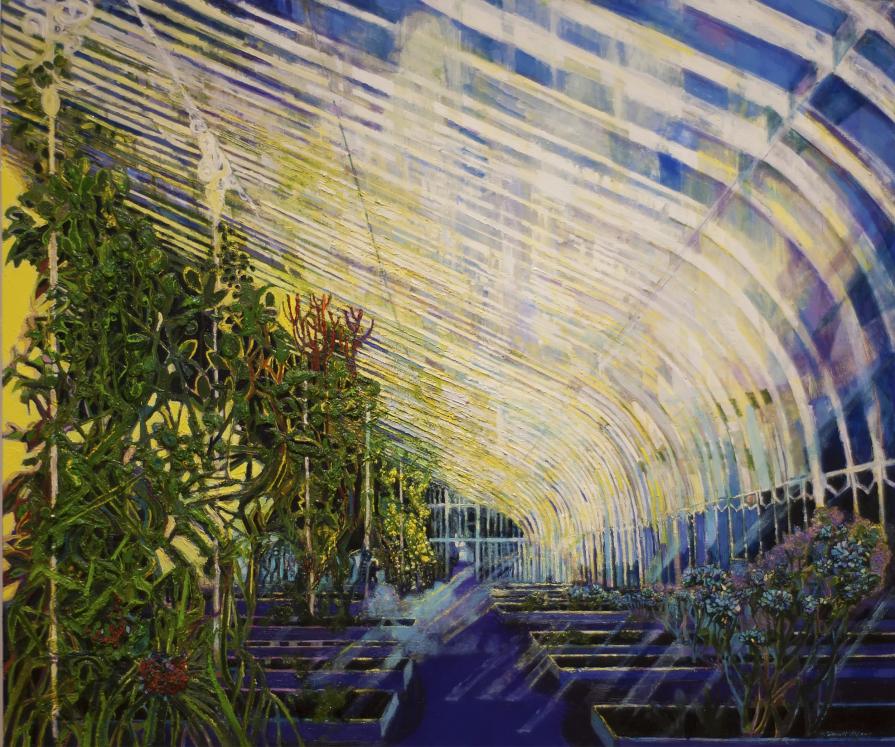Belfast Palmhouse 201
The architectural sites are ambitious industry. Small, hard-hatted figures scurry across vast, rough-edged grids of tarp-shrouded rebar, moving the story by indicating restoration rather than destruction or abandonment, and establishing the grand scale of the undertakings. In Building Babel (all works oil on canvas, 2011-12) an immense green tarp drapes across the central third of the image. The other two-thirds are divided between bright yellow armature and blazing deep blue sky. The colors in other works are even more intense and artificial--toxic fuchsia, teal, and improbable hues of cherry, lavender and violet. A knack for small detail keeps the eye moving and the surface elaborate. A pair of tiny orange traffic cones in Debris Netting; the diffuse splash of background light in Restoration; the man on a ladder throwing off sparks and rising smoke in Restoration Dust. The greenhouses are overrun with dark ferns and flowering vines, jungle-thick and basted in a wet light and glass-filtered mist. As with the trellis of tendrils linking the sky and ground in Glass House, the way in which McWilliams renders the organic contains its own meaning. Squeezing green tubes
directly onto the canvas replicates rather than describes plant anatomy. Even up close, the rhythmic chaos exactly echoes that which it also represents--lush flora--in much the same way that his blurs, washes and dapples act as dusty debris in the construction-site paintings. Evocative, wavering, dimensional, architectural, atmospheric, and chromatically paradoxical--more than depiction, these paintings rise to the level of embodiment. Self-consciously in progress, his work, like his subjects, present a metaphor for the way the modern world is changing, that change itself has become the defining quality of our time."
Shana Nys Dambrot for Art Ltd Magazine july/August 2012










Comments 2
Say something